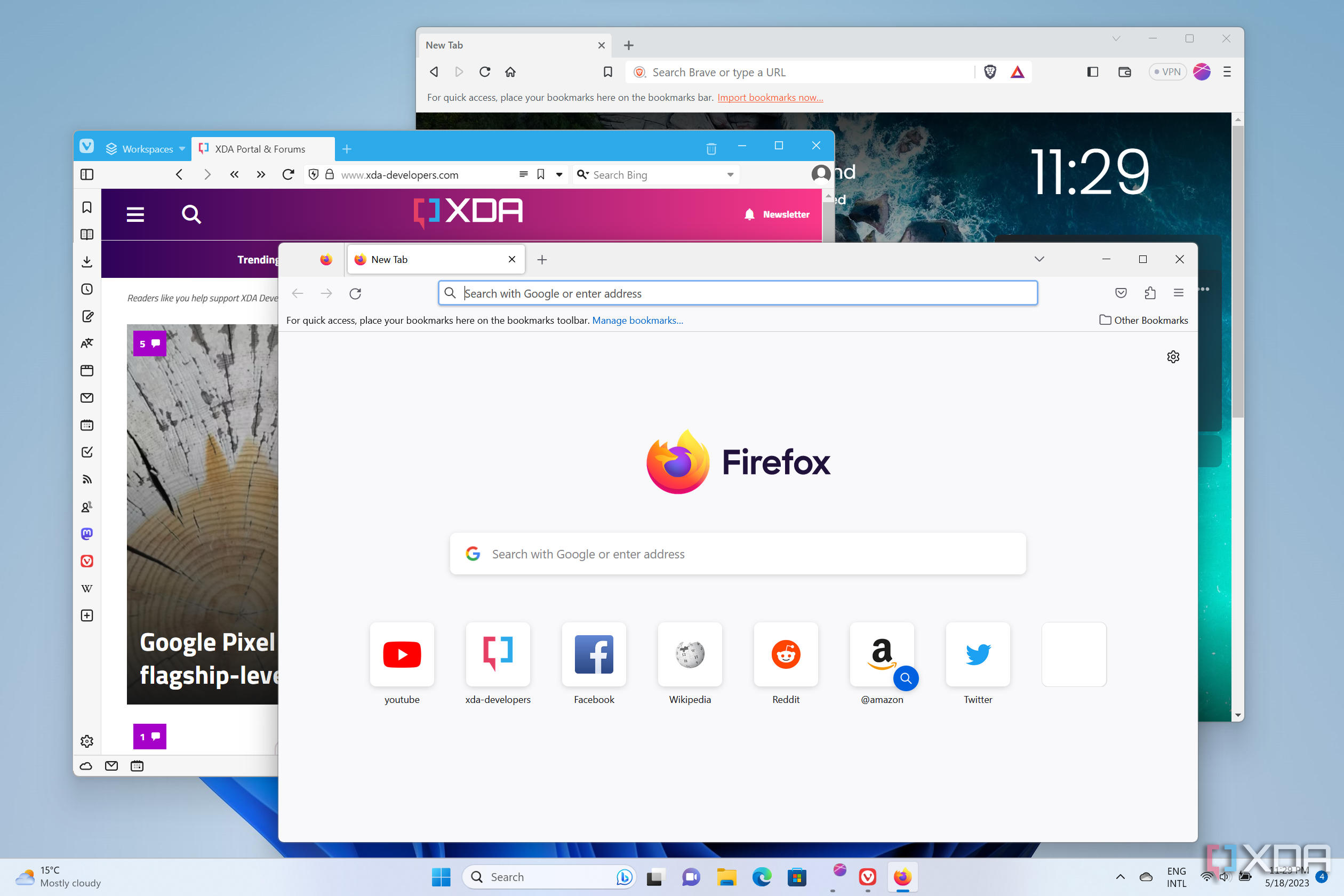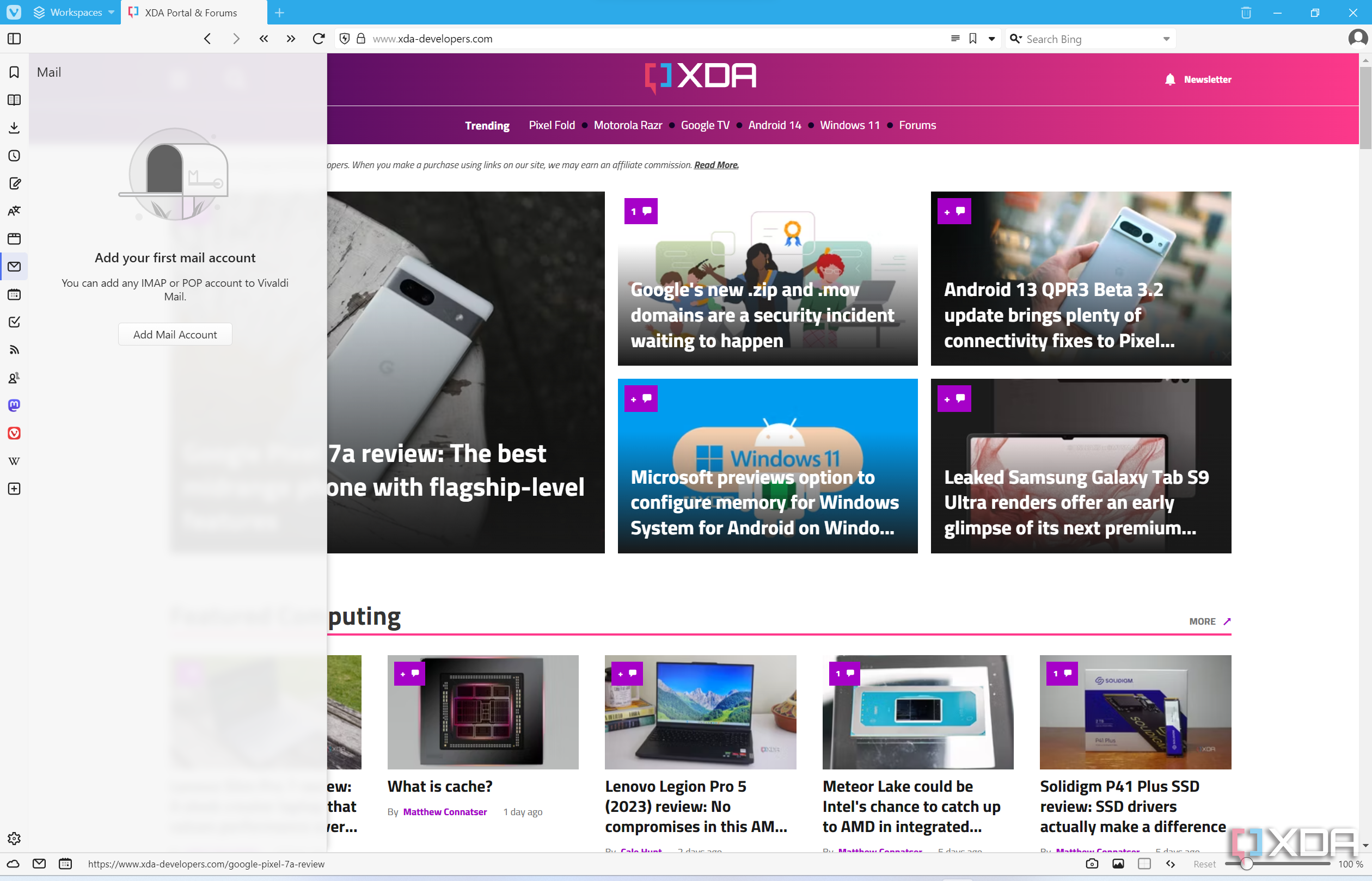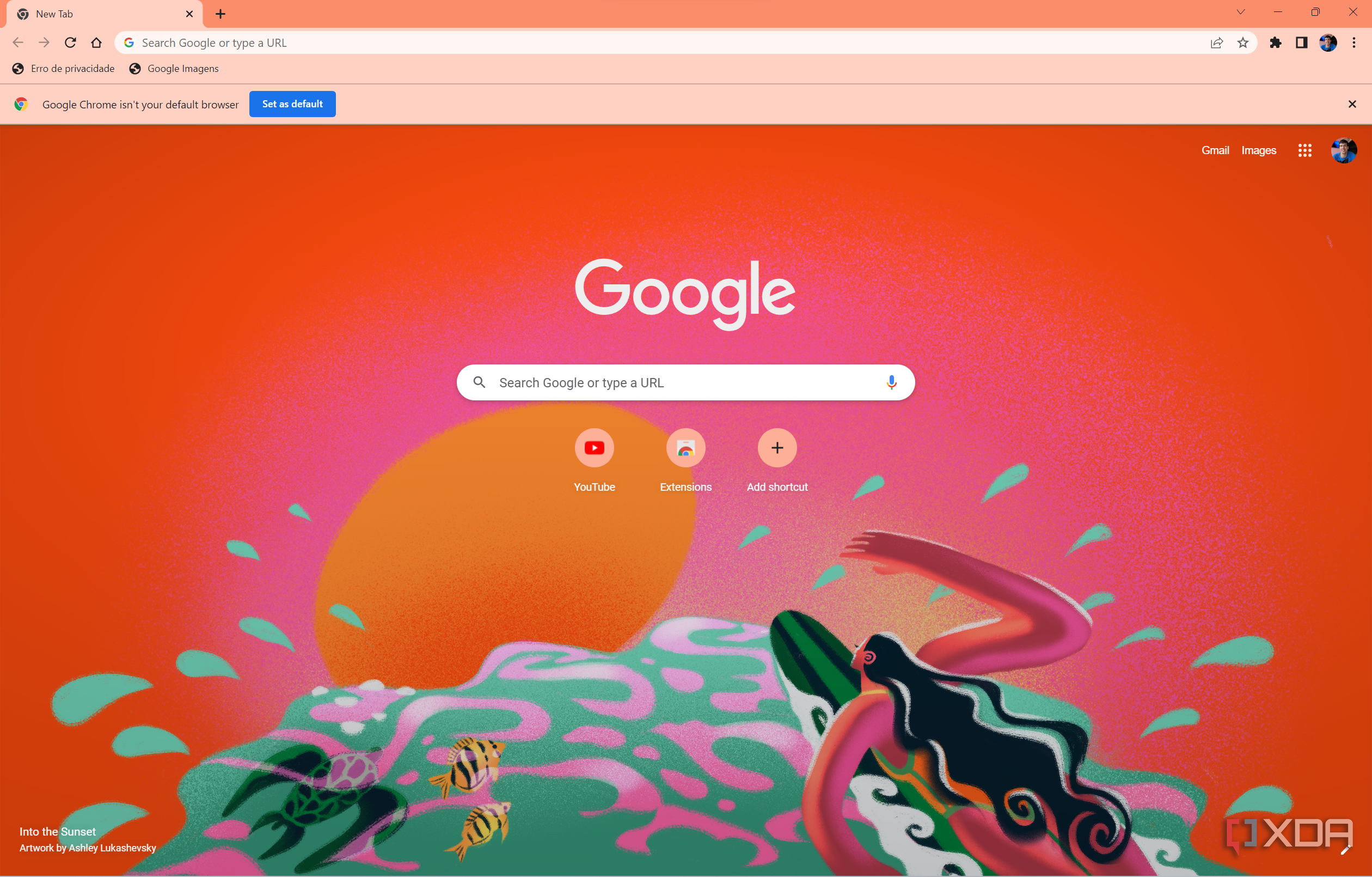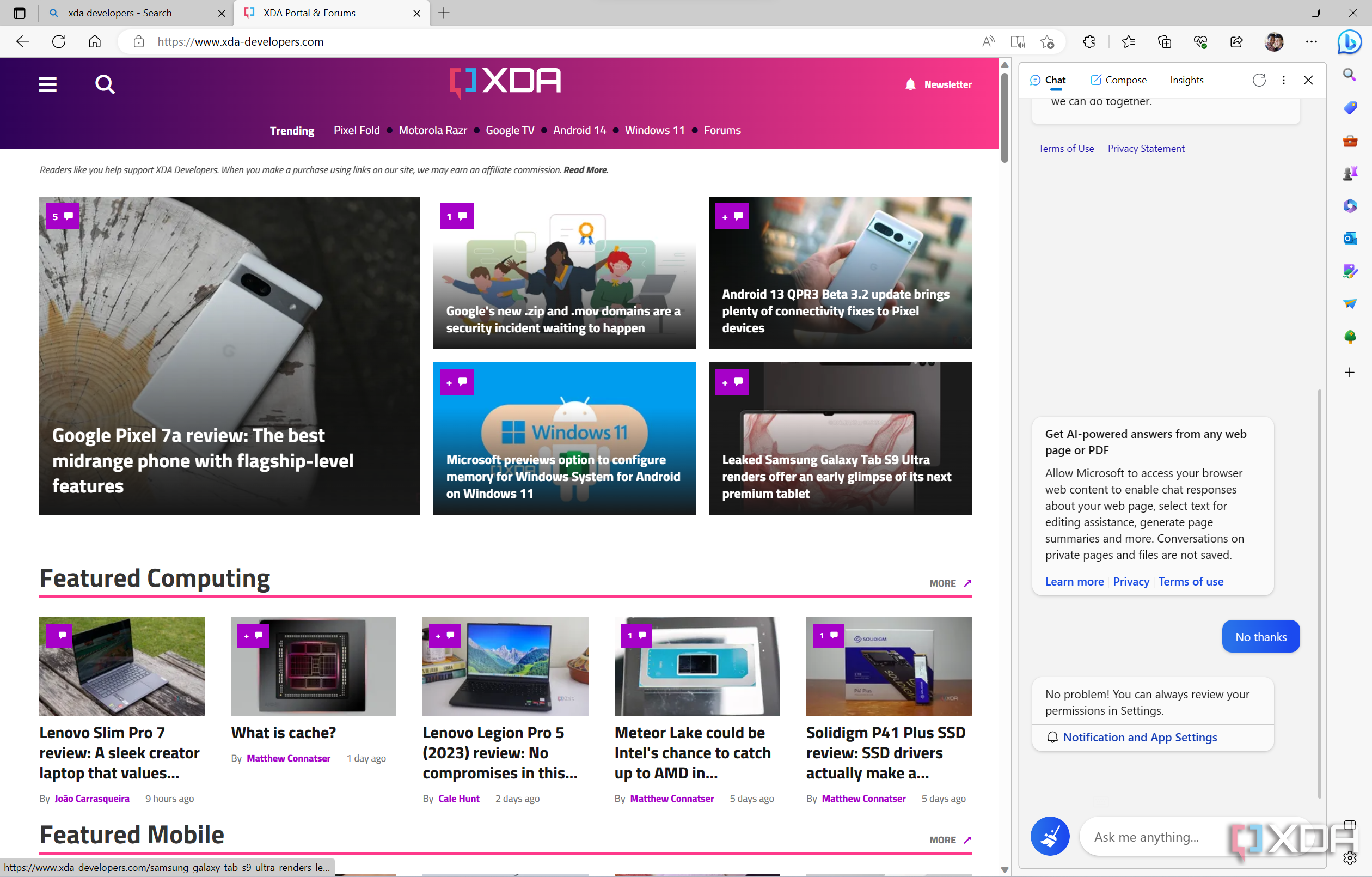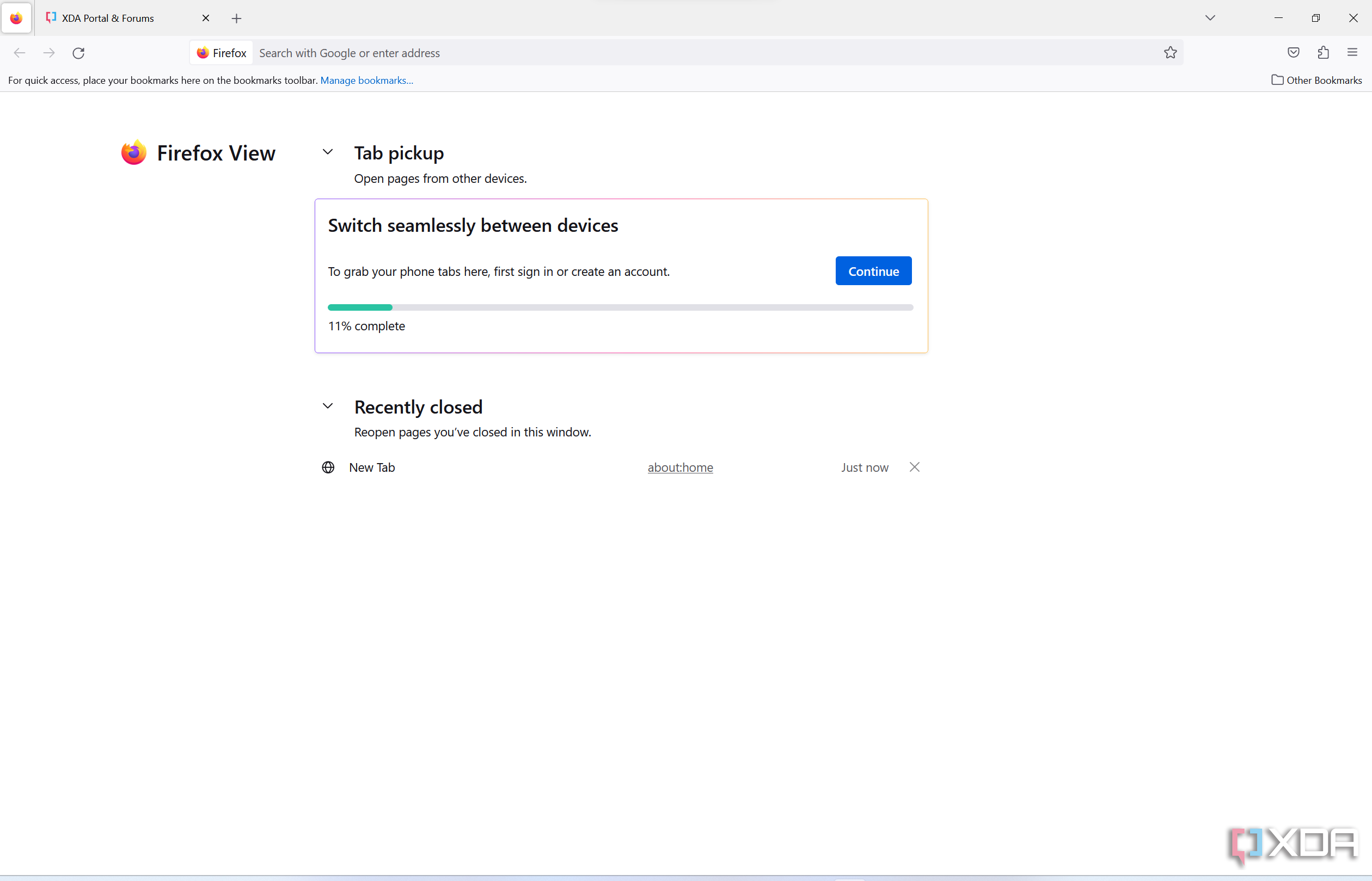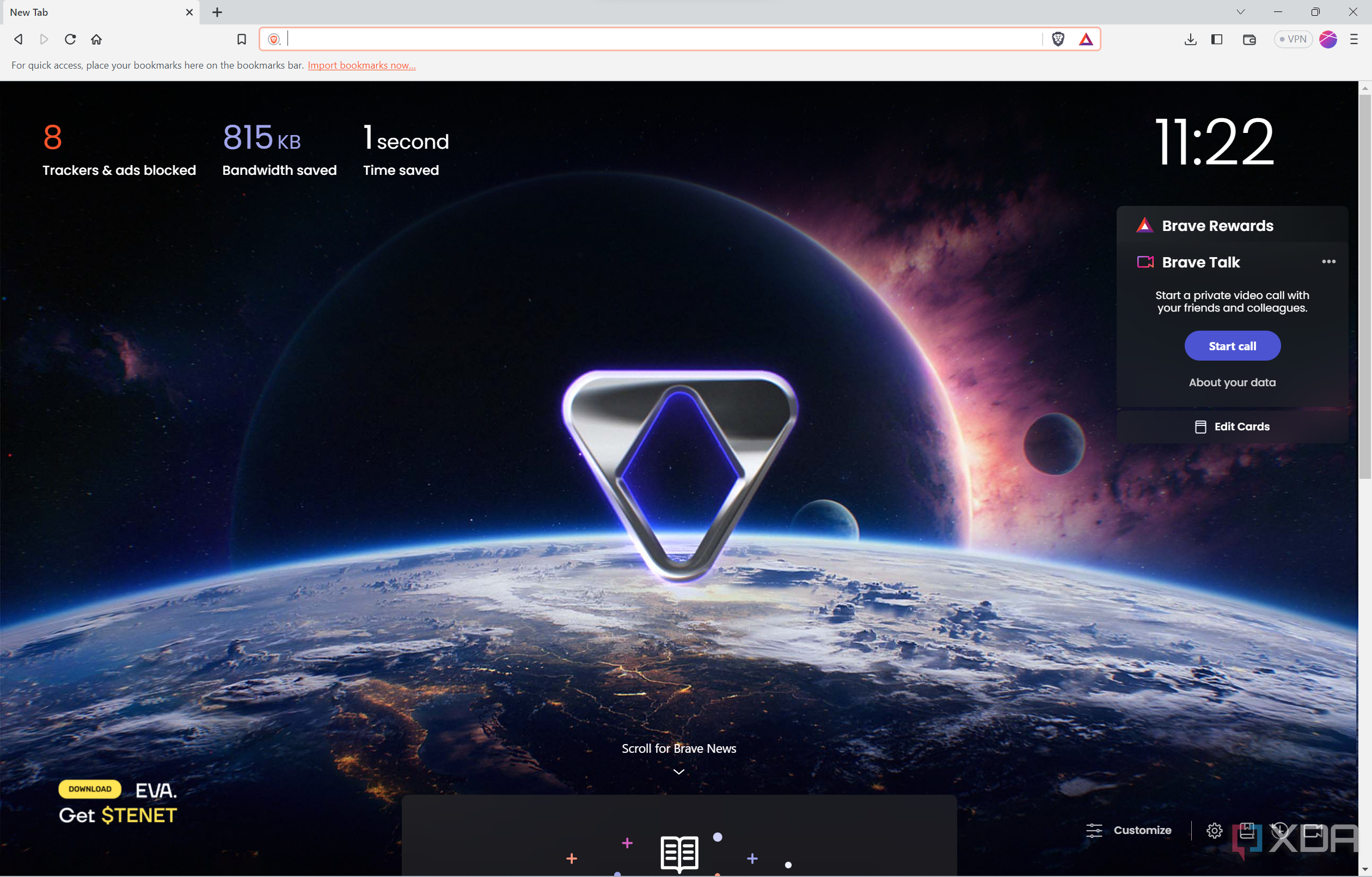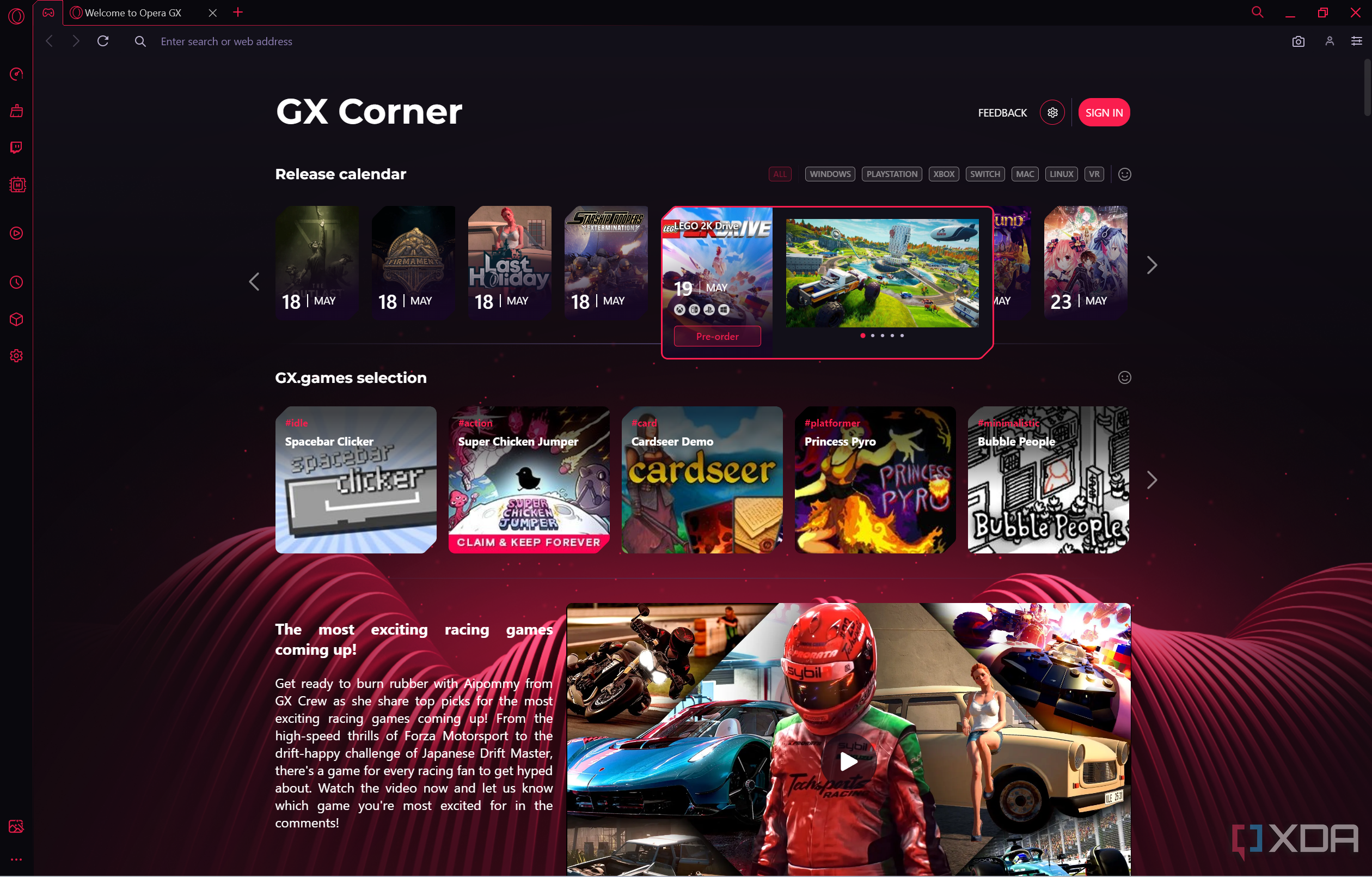Most of what we do on our computers, whether they're running Windows 11 or another operating system, is browsing the web. Checking your social networks, doing research, whatever it may be, the browser is the most used app on most computers, so it's important to have a good one. And if you're not sure which one is best for you, this list should help you out.
Web browsers have become so ubiquitous that most of them are at least functional, and sometimes they can even be good. But some choices still stand out for one reason or another. Let's take a look at them.
1 Vivaldi
Starting right off the bat with my personal browser of choice, Vivaldi is a productivity-focused browser that gets a lot right. Like most browsers on this list, Vivaldi is based on the Chromium project, and as such, it works just as well with any website as Google Chrome would, in addition to supporting Chrome extensions. You get all the other basic features here, like syncing your settings, though you'll need to create a Vivaldi account for that. Oddly enough, you're never really prompted to sign in, so you have to do it yourself if you want to enable sync.
What makes it special is everything that's built on top of that. Vivaldi includes a lot of tools you can use, including an email client, RSS feed aggregator, a notes app, a translator, a to-do list, and more, all built into a side panel on the left side of the window. You can also add websites here, giving you quick access to social networks or anything else you might need to work with in a pinch. Plus, it has features like tab stacking and tiling, so you can group tabs together and even see them side-by-side in the same window.
Vivaldi is also heavily customizable. It has themes, just like Chrome, but it also lets you add or remove individual buttons from most of the toolbars, and even change the button icons using custom themes or icons of your own choosing. There's a lot to dive into here, and it can be overwhelming at first, but it makes for a great browser.
2 Google Chrome
Of course, no list of browsers can go without mentioning the most popular browser in the world. Google Chrome essentially became the foundation for most modern browsers, and while this browser doesn't try to do anything too crazy in terms of features, it's absolutely rock-solid, and it has some very welcome capabilities, like syncing your history and extensions.
One of the cool features in Chrome is support for live captions, meaning that for any video or audio being played in the browser, you can see real-time captions on the screen. It's a very useful feature for those with difficulty hearing, or maybe if you're still learning English. Windows 11 does have live captions built in now, but this visual design is arguably a bit cleaner. There's also a media player button in the toolbar that lets you pause videos or audio from other tabs without having to search around for the right tab.
And of course, Chrome can be greatly enhanced by a never-ending library of extensions that add all sorts of capabilities. You can also get themes from the Chrome Web Store to make the browser your own. You can't really go wrong with Chrome, no matter what your use case is.
3 Microsoft Edge
It may be "just" the built-in browser in Windows 10 and 11, but the current version of Microsoft Edge is actually a great browser. It's based on the Chromium engine, so it's another that's just as good for browsing the web as you could ask for, in addition to supporting all the Chrome extensions you could want. It also has the features you'd expect, like syncing your history and extensions, but now using your Microsoft account instead of Google.
Unlike Chrome, Microsoft Edge has a lot of features compounded on top of the web browsing experience. For one thing, it's the easiest way to access the new Bing AI chat experience, as well as exclusive features like Compose to help you write emails, social media posts, and more. It also has a few quick-access shortcuts built into a sidebar on the right, which give you access to games, tools like a calculator or translator, the ability to send files and notes across devices, and even an AI-powered image creator. This sidebar can even be enabled on the desktop, so you can see it when the browser is closed.
Other cool features like Collections let you save pages and items in groups, and you can also follow creators on social media like YouTube to see updates from them in a dedicated section of the browser. Some of these features may be a bit superfluous, but there are a lot of features to help enhance your browsing experience here. Edge isn't perfect, but it's still a great browser. It should be installed by default, but if you need it, you can download it below.
4 Mozilla Firefox
With Google Chrome becoming so massively popular that its Chromium engine is essentially the backbone of every modern browser, Mozilla's Firefox is basically the only option if you want to get away from this monopoly, so to speak. It's a very capable browser, too, despite having so much work done from scratch and developed independently of Chromium.
Firefox has all the basic functionality you'd expect, and it's still a great option for browsing the web. It also has its own sync feature, so you can access your history and bookmarks. It also supports extensions and themes from Mozilla's own add-on store. It may not have all the extensions you can get for Chrome, but there's a lot here.
This is another browser that doesn't go too crazy in terms of extra features, but it provides a solid browsing experience and it nails the basics. It also has Pocket integration so you can save articles to read later, and Mozilla is working on a VPN service that's currently available in a few countries around the world. Privacy and transparency are big focal points for Firefox, and if you don't want your data in the hands of large corporations, this is still one of the best options out there.
5 Brave
A recent name in the web browser market is Brave, a browser based on the Chromium engine but putting performance and privacy at the forefront. As a Chromium-based browser, you can, of course, expect it to perform perfectly fine browsing the web, and it also supports the extensions you know and love. It also supports syncing your data using a custom sync code rather than a typical account system.
Brave touts performance up to three times faster than Chrome, and it includes a lot of privacy-oriented features like blocking intrusive ads, cross-site trackers, and even fingerprinting, which is a technique used by websites to track visitors based on the technical specifications of the device, even when cookies and typical trackers are disabled. Brave also has a built-in VPN, if you're willing to pay for it.
It's not just performance and privacy, though. Brave offers its own video calling service, promising a private connection, as well as the ability to create playlists for videos and content online (which you can save to view offline), and a customizable news feed visible on the home page. Nothing too crazy, but Brave delivers a combination of performance, privacy, and features that are definitely appealing.
6 Opera GX
This one is more of a niche option, but Opera GX is a browser aimed at gamers, specifically, those who want to game while having their browser in the background. Opera GX is designed to be lightweight, and it goes as far as giving you the option to limit the resources it can use on your system, like CPU, RAM, and network usage, so you can ensure you still get the best possible performance out of your games.
While it does have a lot of features, some of their usefulness is debatable. One interesting feature is GX Corner, a page that has information about what's going on in the gaming world, including upcoming game launches across different platforms, deals on games on various platforms, and game trailers and news. It also gives you quick access to Twitch and Discord (other messaging services are also supported) from the sidebar, so you can keep up with the communities you're a part of.
There are also more standard features, like pinboards that let you easily bring together notes, images, and so on, Flow to let you send pages across devices, and more. There's even a free VPN built-in. While the striking visual design will probably push a lot of users away, there are a few interesting features here that make this a potentially appealing option.
Bottom line: It's great to have choice
All of these browsers ultimately provide a solid foundation in terms of web browsing, and realistically, you can't go wrong with any of them. It's all about choosing the one that suits your needs the best. Personally, Vivaldi is my absolute favorite, with a ton of capabilities and features that speed up my workflow and let me have the experience I want. But whatever your preferences are, there's something here for you.
If you're looking for other apps that might help boost your productivity, check out the best Microsoft Office alternatives. And if you find that even the lightweight browsers are running slowly on your PC, maybe it's time to consider buying a new laptop.

